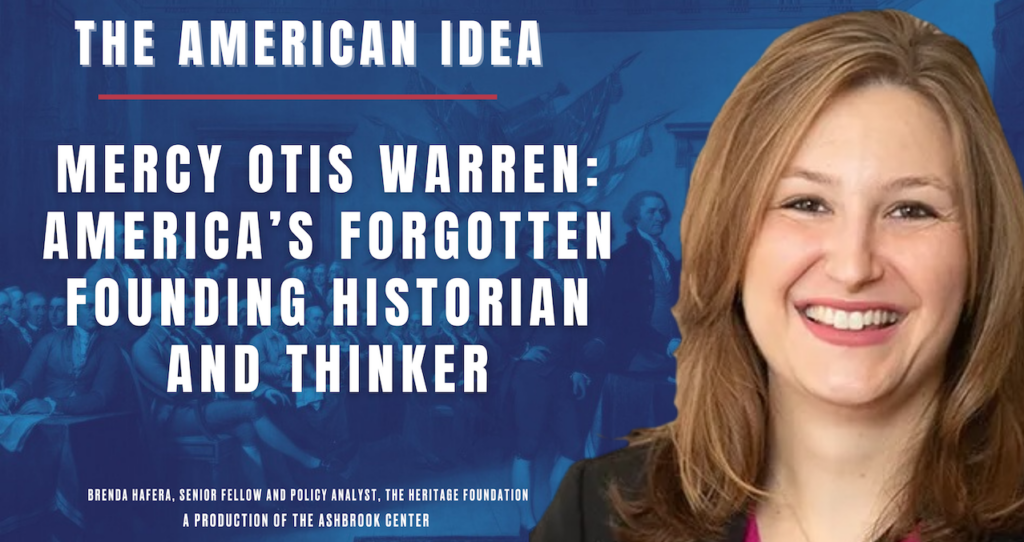Mercy Otis Warren: Forgotten Historian, Founding Mother
July 30, 2025

Listen and subscribe to the podcast
Join The American Idea’s Listener Email list – get news about upcoming episodes and a chance to offer questions for them, too!
A Voice in the Revolution
Mercy Otis Warren, too often a footnote in American history, emerges as a pivotal force in the nation’s formative years. A writer, historian, and political commentator, her contributions carved a unique anti-federalist perspective into the republic’s early discourse. Born into the politically charged environment of colonial Massachusetts, her life and works serve as a critical lens through which to examine the revolutionary era.
Intellectual Origins
Warren’s intellectual journey defied the conventions of her time. Though denied formal schooling, she cultivated a formidable intellect through self-education, devouring classical literature and philosophy. Tutored by her uncle, she became particularly fond of ancient writers like Xenophon and Raleigh, influences that would later inform her political and historical analyses. Her plays, poems, and the monumental History of the American Revolution were not mere chronicles; they were moral and philosophical dissections of liberty and power. This approach, though criticized by some for its perceived bias, offered a crucial counter-narrative to the prevailing Federalist interpretations, providing a unique insight into the revolution’s complexities.
Political Battles and Personal Rifts
The political arena of Warren’s era crackled with ideological clashes, and her staunch anti-federalist stance placed her squarely in the fray. She feared the proposed Constitution’s concentration of power, a concern rooted in her belief in individual and states’ rights. Her relationships with figures like John and Abigail Adams, initially warm and marked by mutual respect, frayed under the strain of these political differences. A personal plea for her son, Winslow, during John Adams’ presidency, and her subsequent critique of his judgment in her history, sparked a temporary but significant rift. This episode underscored the delicate balance between personal loyalty and political conviction that defined the era. She criticized Alexander Hamilton’s “crackpot schemes” and worried that John Adams was too influenced by the British Monarchy.
Women and the Republic
Beyond her political writings, Warren’s life exemplifies the complex role of women in the nascent republic. Though barred from formal political power, she wielded influence through her pen and her advocacy for civic virtue. She embodied the ideal of the “Republican Mother,” stressing the importance of raising virtuous citizens to safeguard the republic. Her writings, particularly her letters to her sons, emphasized moral character and civic duty. In a society that largely confined women to the domestic sphere, Warren’s intellectual contributions challenged prevailing norms, signaling the power of women’s voices in shaping the nation’s future. Figures like Alexander Hamilton praised her contributions, acknowledging her intellectual prowess in a time when women’s voices were often dismissed.
Enduring Legacy
Mercy Otis Warren’s life and work provide a vital window into the American Revolution and its aftermath. Her anti-federalist perspective, her emphasis on civic virtue, and her pioneering role as a female historian make her a figure ripe for rediscovery. As the nation grapples with the challenges of maintaining its republic, her insights remain relevant, a reminder of the enduring importance of vigilance, virtue, and the pursuit of liberty.

